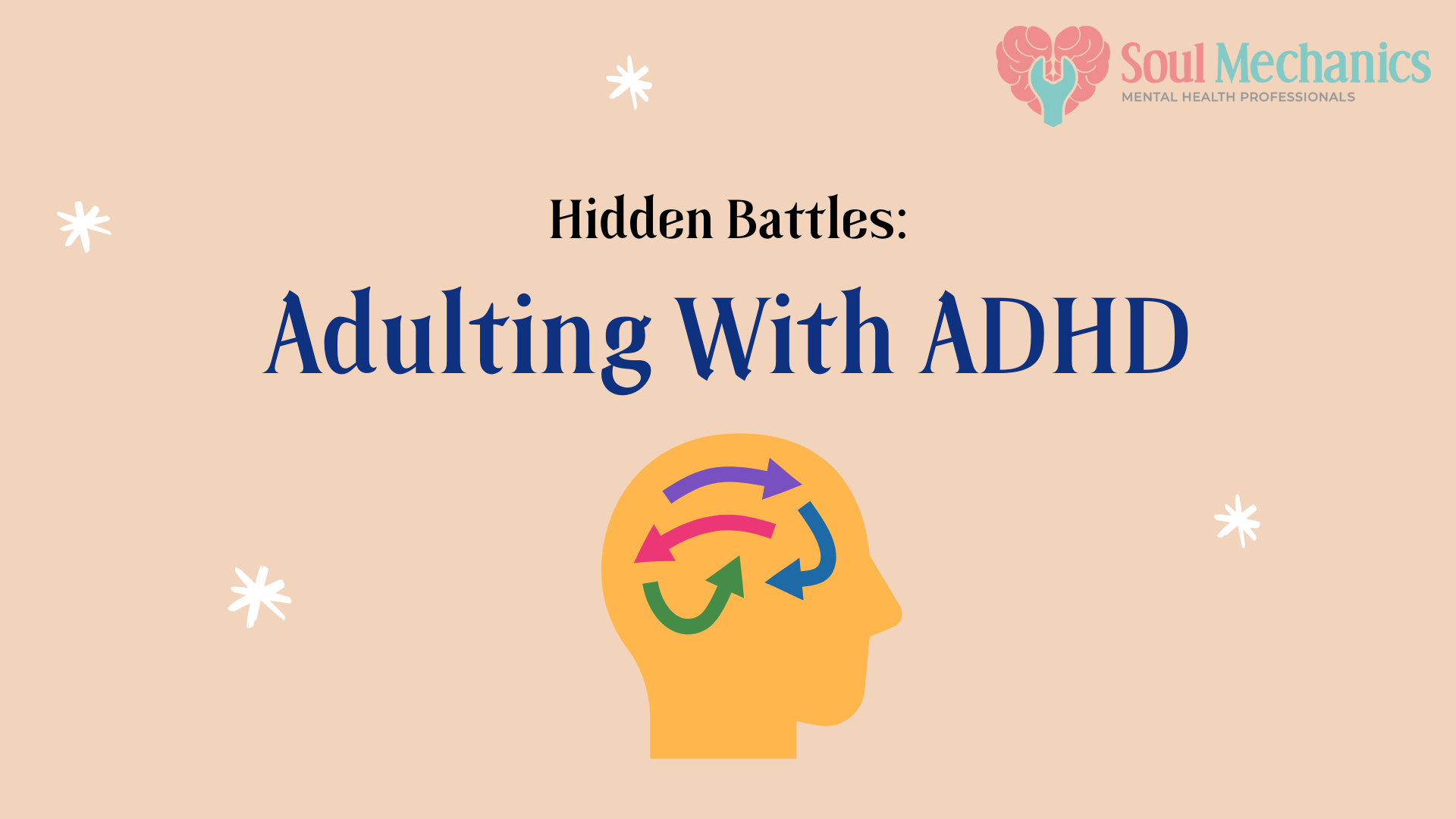ADHD In Adulting: The Hidden Battles
ADHD In Adulting: The Hidden Battles
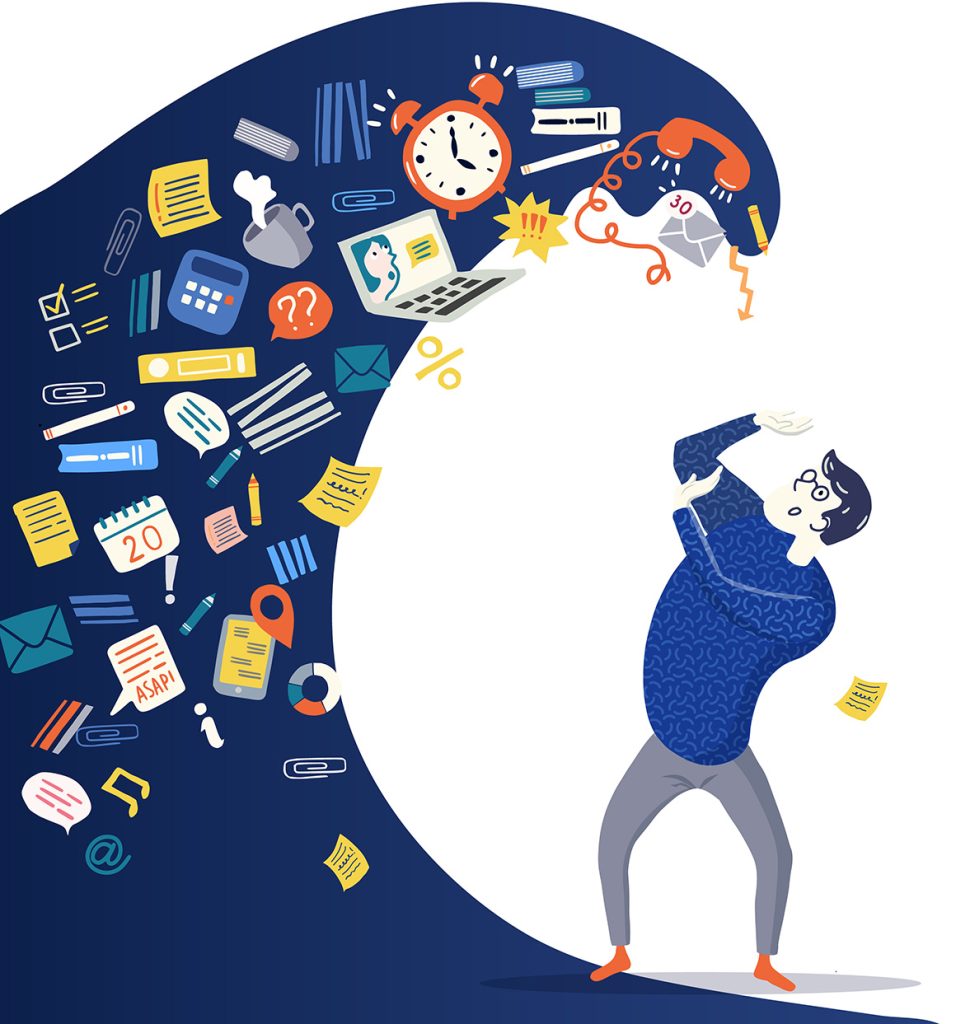
ADHD? How Common It Is?
Attention Deficit Hyperactivity Disorder (ADHD) is something that often begins in childhood, but adults experience it too and it’s a silent battle that many choose to keep silent about. In our previous article, we discussed it in general with its symptoms and what kind of therapy is beneficial. In this article, let's dive more into the common obstacles that adults with ADHD face and learn more insights on how we can support them in their daily battles.
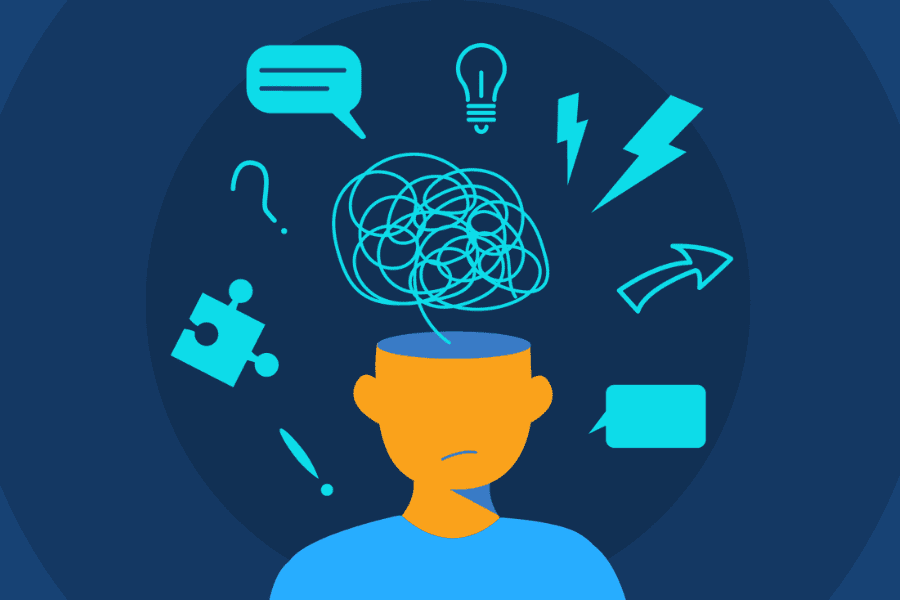
Common Struggles of Adults with ADHD
Adults living with ADHD struggle with a daily battle in various aspects of their lives, such as work, personal well-being and relationships. Below are some of the most common struggles faced:
1. Low Self-Esteem
The silent battles that they go through can lead them to doubt themselves frequently and have a sense of worthlessness. This can erode their self-esteem.
2. Relationship Issues.
Adults with this condition often strain their relationships due to their emotional dysregulation and impulsivity. This often leads to conflicts and misunderstandings in their relationship with others.
3. Employment Challenges.
Maintaining stable employment can be challenging for them due to difficulties in time management, organization, and focusing on tasks. This leads them to frequently change their jobs or face underemployment.
4. Procrastination.
They tend to start their tasks or responsibilities at the last minute. This often makes it challenging to fulfil their responsibilities and meet required deadlines.
5. Mood Swings.
Difficulty in emotional regulation and mood swings are quite common, leading them to feel high emotional reactions.
6. Time/Financial Management.
They often face challenges in estimating the needed time for their tasks and budgets. This leads them to face lateness, inadequate planning, impulsive spending, overlooking bills, etc.
7. Impaired Memory.
They also often face challenges with their short-term memory and forgetfulness. This leads them to have difficulty remembering important tasks or information.
8. Disorganization.
Disorganization in their work or living spaces leads them to have difficulty in staying on top of their responsibilities and finding needed things.
9. Substance Abuse.
Some also turn to substances such as alcohol or drugs to manage their symptoms, which often leads to addiction issues.
10. Mental Health Issues.
They are often subjected to the high risk of developing other mental health issues such as depression and anxiety, as they struggle to manage their emotions healthily.
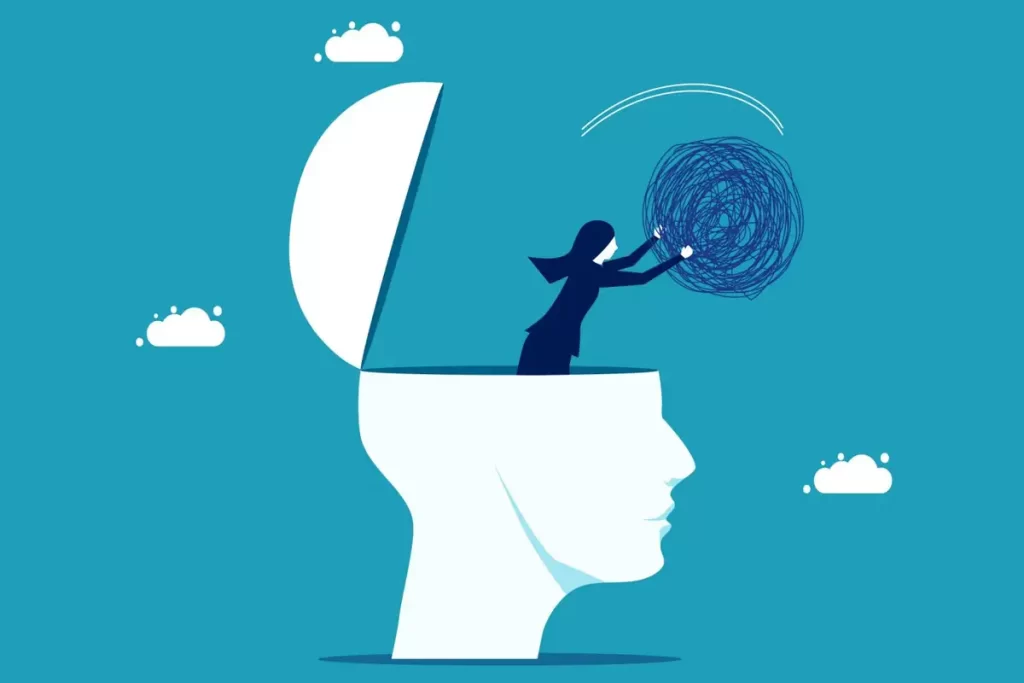
How to Offer Support to Loved Ones with ADHD?
Sometimes all an individual experiencing ADHD needs is some support, patience, and validation to work on the daily challenges they face due to their condition. Below are a few ways we can provide support from our end to our loved ones:
1. Education & Self-Awareness.
It is important to educate ourselves about ADHD, its symptoms and its impacts when you have a loved one with ADHD. This helps us to understand their struggles better and reduces the possibility of us unconsciously invalidating their battles. Self-awareness, helps us to offer more practical support for our loved ones with this condition.
2. Supportive Work Environment.
If you are working with someone with ADHD, creating a supportive working environment, such as giving clear instructions, regular feedback and flexibility is essential. This further helps them succeed in their work role and is highly beneficial, especially when their symptoms escalate.
3. Organizational Tools & Strategies.
Encourage our loved ones with ADHD to incorporate tools like to-do lists and calendars in their smartphone to further navigate them to organize their time and other management. This would be an invaluable aid for them to sustain their focus on their daily tasks and routines.
4. Emotional Support.
Offering emotional support is the heart of supporting loved ones with ADHD. Provide them with a non-judgemental and safe space to express their daily battles and how they feel about it. Making them feel that their emotions are valid can lead them towards better self-acceptance.
5. Encouragement on Healthy Lifestyles.
Encourage them to include healthy lifestyles in their daily or weekly schedules such as regularly exercising, having a balanced diet, and properly resting for an adequate amount of time. Having healthy lifestyles as a priority can positively impact their ADHD symptoms.
6. Communication.
Include more effective communication skills such as empathy, active listening, and being mindful of your choice of words while communicating with loved ones with ADHD. This would make them feel heard and can reduce conflicts and other misunderstandings in your relationship with them.
7. Time/Routine Management.
We can also assist our loved ones with ADHD in creating their daily schedules and routines, especially when their symptoms are showing up intensely. This would make them feel supported. Make sure to add relaxation-related activities to their routine. Structure in their routine can make a huge difference for them.
8. Therapy Encouragement.
One of the crucial steps in supporting our loved ones experiencing ADHD is to suggest they seek therapy. A mental health practitioner can further assist them in developing a more specific therapy plan based on their needs and the intensity of the ADHD symptoms, leading towards a more healthy lifestyle management.
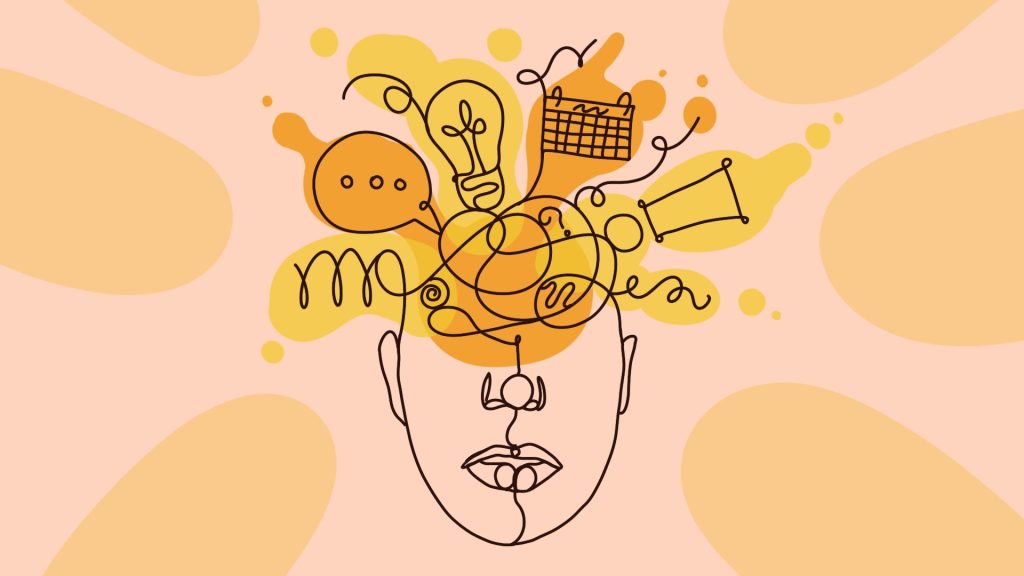
How Therapy Can Be Beneficial?
In the previous article, we dive into the topic of how therapy works with individuals experiencing ADHD. Now let us look into how beneficial therapy can be for adults with ADHD.
1. Improved Coping.
Many frequently opt for unhealthy coping while dealing with the symptoms of ADHD, such as suppression, overworking, entertainment, self-destructive behaviours, and many more. Therapy assists one to learn healthier coping skills that help them to reduce their frustration, stress and anxiety associated with their ADHD symptoms.
2. Skills Enhancement.
Therapy also provides adults with ADHD with practical skills and tools that assist them in managing the intensity of the ADHD symptoms. These skills also further foster them to manage their responsibilities and self better.
3. Greater Independence.
Therapy works on one’s unhealthy thoughts and behaviours towards self due to ADHD or the symptoms of ADHD. This equips one to gradually learn to embrace themselves for uniqueness and be more self-reliant.
4. Enhanced Self-Awareness.
Therapy also assists one in understanding their symptoms, triggers, behavioural and thought patterns, strengths and weaknesses. This empowers their self-acceptance and fosters them to be more mindful and self-aware.
5. Better Relationships.
Therapy aids one with ADHD to learn effective communication skills and ways to healthily regulate their emotions. This navigates them to lead a more fulfilling and healthier relationship with their self and loved ones.
Conclusion
In short, ADHD is not just a condition that only children face, adults too experience ADHD. ADHD adults face varying challenges that can profoundly impact their lives. Their struggles are often dismissed and not taken into consideration. Nevertheless, with support and understanding from their loved ones and the people around them, adults experiencing ADHD can also lead successful and fulfilling lives. By joining hands to foster awareness, implement practical strategies, and enhance communication, we can build an ADHD-inclusive society and make a huge difference in the lives of adults experiencing ADHD.
“Let’s embrace and celebrate the uniqueness of ADHD individuals instead of oppressing their voices and story.”
If you would like to read our previous article related to ADHD, click here.
For more content related to mental health do follow us on our official Instagram.

